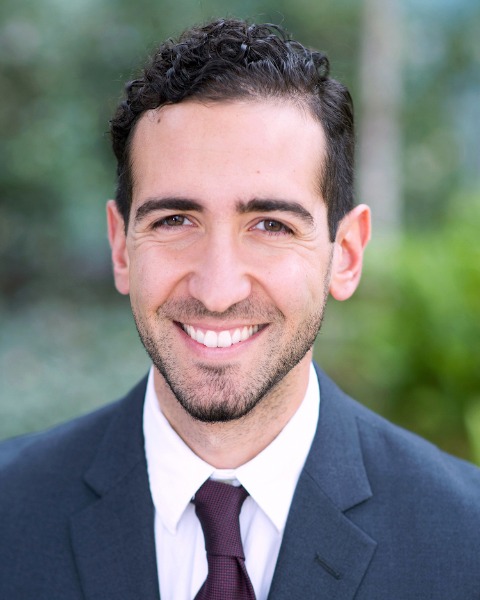Emergency Medicine: All Areas
Category: Abstract Submission
Emergency Medicine VIII
355 - Emergency Department Social Care Practices Survey and Toolkit: an Explanatory Sequential Mixed Methods Approach
Sunday, April 24, 2022
3:30 PM - 6:00 PM US MT
Poster Number: 355
Publication Number: 355.313
Publication Number: 355.313
Raymen R. Assaf, Harbor UCLA Medical Center, La Crescenta, CA, United States; Hannah Barber Doucet, Hasbro Children's Hospital at Rhode Island Hospital, Providence, RI, United States; Ryan D. Assaf, Fielding School of Public Health, UCLA, Los Angeles, CA, United States; Danielle Graff, University of Louisville School of Medicine, Louisville, KY, United States

Raymen R. Assaf, MD, MPH, MA
Pediatric Emergency Medicine Fellow
Harbor UCLA Medical Center
La Crescenta, California, United States
Presenting Author(s)
Background: The emergence of social emergency medicine – incorporation of social context into the structure and practice of emergency care – has reaffirmed the relevance of social determinants of health (SDH) in medicine, yet workforce organization and training around social care remain elusive.
Objective: To assess the social care knowledge, perspectives, and training of PEM program directors (PDs) and fellows in a national cross-sectional sample. To develop a social care training toolkit for PEM training programs.
Design/Methods: An explanatory mixed methods approach was used in which foundational quantitative data informed the qualitative. In the first (quantitative) phase, a social care practices assessment tool was developed via snowball sampling interviews among 17 clinician-researcher experts and disseminated to PEM PDs and fellows nationally. Data was analyzed descriptively and under two threads: ED organizational structure and SDH training. In the second (qualitative) phase, a diverse national task force of experts systematically curated relevant documents and participate in Delphi rounds to develop an evidence-based and consensus-backed social care training toolkit.
Results: A total of 153 participants – 44 PDs (49% response) and 109 fellows (28%) – completed the assessment tool. PD and fellow responses were highly concordant. Social care was highly valued by 73% of participants. All felt providing social care training during PEM fellowship would be beneficial. Those working in EDs with a social care systematic workflow had higher odds of comfort with [OR 2.87 (95% CI: 1.24, 6.65)] and value of social care [OR 3.06 (95% CI: 1.07, 8.79)] compared to those without organizational level support. Likewise, they had higher odds of screening for social needs [OR 1.84 (95% CI: 0.93, 3.66)] and for making community referrals [OR 2.84 (95% CI: 1.45, 5.56)]. The majority of both fellows (80%) and PDs (70%) felt unprepared to assist families with social needs, despite markedly different rates of prior training in SDH (fellows 82% vs PDs 52%, p < 0.001) and screening/referral technique (fellows 46% vs PDs 7%, p < 0.001). PDs and fellows identified five priority areas for social care toolkit development by the national task force.Conclusion(s): PEM PDs and fellows have an overall favorable perception of social care yet report significant deficits in current practice organization and training. This study is part of a larger national collaborative advocacy project to organize and advance social care delivery across academic PEM training institutions through evidence-based approaches, best practices, and expert consensus.
R.Assaf CVR.Assaf_CV Dec 2021.pdf
Table 2. Social care perspectives and organizational level factors, PEM Fellows and Program Directors.png)
Objective: To assess the social care knowledge, perspectives, and training of PEM program directors (PDs) and fellows in a national cross-sectional sample. To develop a social care training toolkit for PEM training programs.
Design/Methods: An explanatory mixed methods approach was used in which foundational quantitative data informed the qualitative. In the first (quantitative) phase, a social care practices assessment tool was developed via snowball sampling interviews among 17 clinician-researcher experts and disseminated to PEM PDs and fellows nationally. Data was analyzed descriptively and under two threads: ED organizational structure and SDH training. In the second (qualitative) phase, a diverse national task force of experts systematically curated relevant documents and participate in Delphi rounds to develop an evidence-based and consensus-backed social care training toolkit.
Results: A total of 153 participants – 44 PDs (49% response) and 109 fellows (28%) – completed the assessment tool. PD and fellow responses were highly concordant. Social care was highly valued by 73% of participants. All felt providing social care training during PEM fellowship would be beneficial. Those working in EDs with a social care systematic workflow had higher odds of comfort with [OR 2.87 (95% CI: 1.24, 6.65)] and value of social care [OR 3.06 (95% CI: 1.07, 8.79)] compared to those without organizational level support. Likewise, they had higher odds of screening for social needs [OR 1.84 (95% CI: 0.93, 3.66)] and for making community referrals [OR 2.84 (95% CI: 1.45, 5.56)]. The majority of both fellows (80%) and PDs (70%) felt unprepared to assist families with social needs, despite markedly different rates of prior training in SDH (fellows 82% vs PDs 52%, p < 0.001) and screening/referral technique (fellows 46% vs PDs 7%, p < 0.001). PDs and fellows identified five priority areas for social care toolkit development by the national task force.Conclusion(s): PEM PDs and fellows have an overall favorable perception of social care yet report significant deficits in current practice organization and training. This study is part of a larger national collaborative advocacy project to organize and advance social care delivery across academic PEM training institutions through evidence-based approaches, best practices, and expert consensus.
R.Assaf CVR.Assaf_CV Dec 2021.pdf
Table 2. Social care perspectives and organizational level factors, PEM Fellows and Program Directors
.png)
